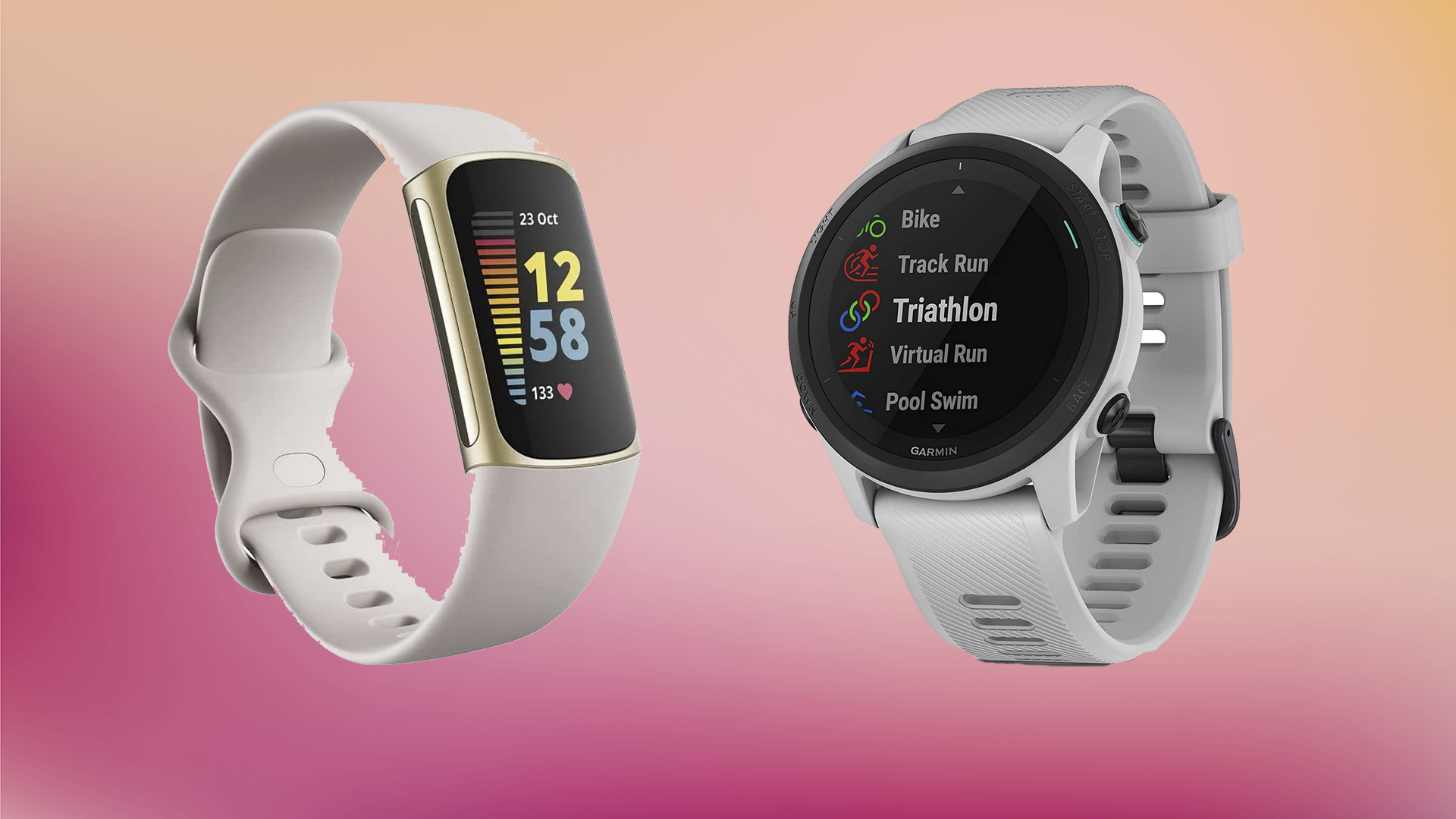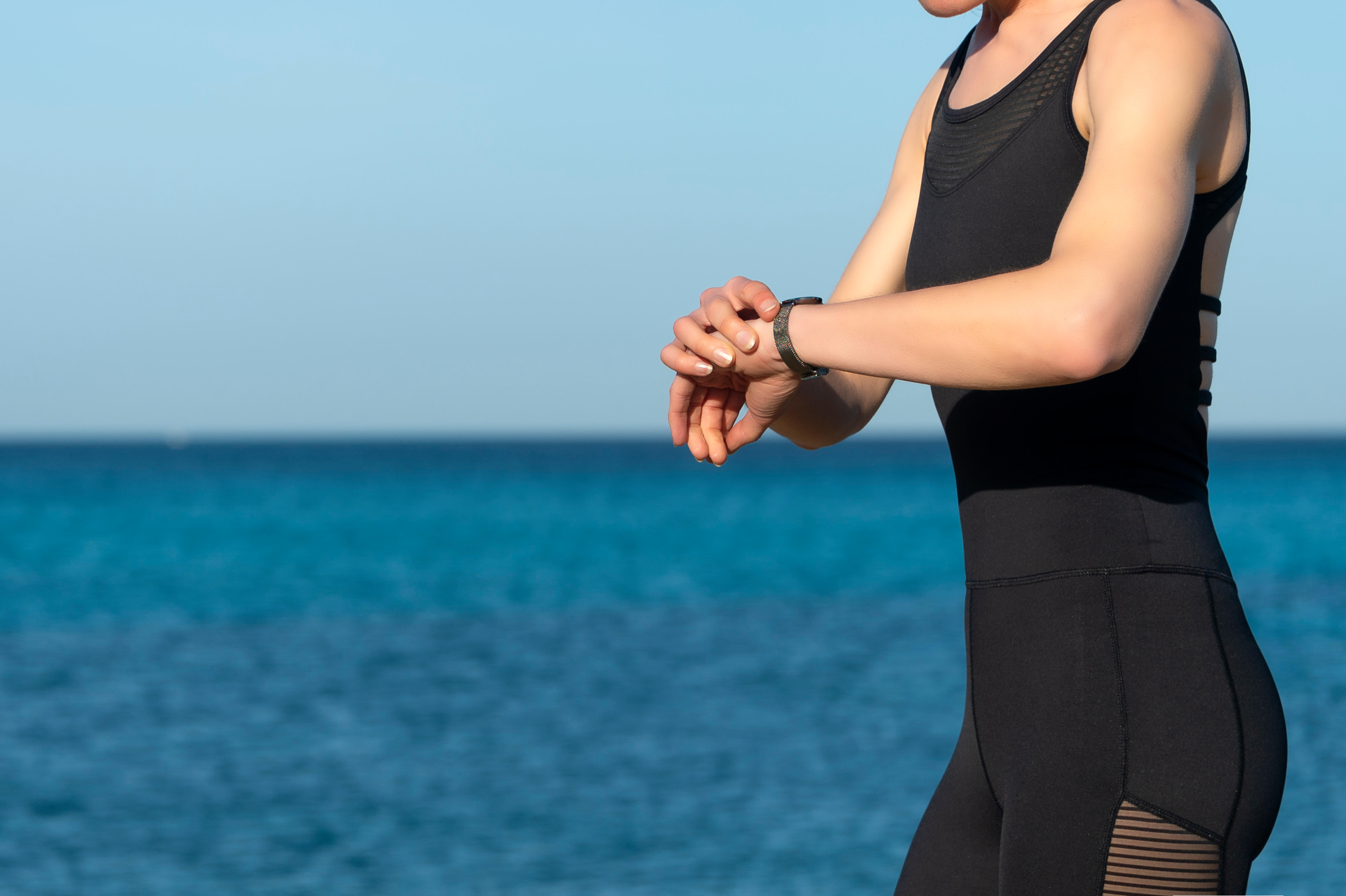Fitbit vs Garmin – which fitness tracker brand is best?
Fitbit vs Garmin is a showdown of fitness tracker titans. The two of the biggest brands in the market, which one is best for you?


The Livingetc newsletters are your inside source for what’s shaping interiors now - and what’s next. Discover trend forecasts, smart style ideas, and curated shopping inspiration that brings design to life. Subscribe today and stay ahead of the curve.
You are now subscribed
Your newsletter sign-up was successful
Fitbit vs Garmin is the current big battle in the world of fitness trackers. Both brands have managed to corner the growing market, fuelling the smartwatch industry. And as their popularity shows, they're not just fads or gimmicks. As more and more people try to live active lifestyles, fitness trackers help keep you on the straight and narrow, increasing fitness levels and tracking your health metrics.
Admittedly, Garmin has been around longer than Fitbit — the company originally made sports watches but evolved its products to become more like smartwatches. But Fitbit has a better brand association - Google acquired Fitbit back in 2021 for $2.1 billion.
As the brands behind the best fitness trackers, both Fitbit and Garmin offer a variety of products that suit consumers with different fitness and activity needs. However, knowing which device will best meet your needs can be challenging.
So if you're a keen runner or bought exercise equipment to use at home, owning a fitness tracker seems like the logical next step.

Fitbit vs Garmin: Why choose Fitbit?
Fitbit releases new fitness trackers annually, meaning you’ll always be able to get a new fitness tracker with the latest technology and features. The company’s first wearable fitness device was a pedometer-style wristband that counts your steps throughout the day and tracks your sleep.
As time passed, Fitbit began adding new sensors and design elements and moved into the smartwatch space with Apple, Google, and Samsung. You can still track your fitness activities using Fitbit, but it has enhanced features that give you more insight into your health - totally upping your home gym game.
The most popular Fitbit fitness trackers are:
The Livingetc newsletters are your inside source for what’s shaping interiors now - and what’s next. Discover trend forecasts, smart style ideas, and curated shopping inspiration that brings design to life. Subscribe today and stay ahead of the curve.
- Fitbit Ace 3
- Fitbit Charge 5
- Fitbit Luxe
- Fitbit Inspire 2
Each Fitbit fitness trackers range from around $79-$200, so there’s certainly one tracker that will fit your budget. Fitbit also sells three smartwatches: Fitbit Sense, Fitbit Versa 3, and Fitbit Versa 2. Fitbit has typically focused on developing its trackers, which is why they have a limited selection of smartwatches. The company may release new iterations soon.
Fitbit’s fitness trackers come with small and large wristbands - the company also sells accessories for each tracker. You can buy different colored wristbands to suit your preference and style.
Most Fitbit trackers do not require daily charging. Take the Inspire 2, which promises to go on a single charge for ten days. Remember how you use your Fitbit and display settings can impact how long one charge lasts. Fitbit trackers will track your steps, heart rate, and sleep quality and even notify you during periods of inactivity.
Fitbit also recently added menstrual health tracking to some of its trackers and guided breathing exercises. Its latest Sense watch even indicates your body’s response to stress! The Fitbit Charge 5 also works with Fitbit’s electrocardiogram (ECG) app, checking for signs of heart disease and other cardiovascular diseases. This may be an appealing feature for older adults trying to monitor their overall cardiovascular health.
Some Fitbit products offer a built-in GPS feature to map outdoor activities. Fitbit works with both Androids and iPhones, and you can download the Fitbit app to connect your watch. The app platform is still growing, but it does include a Spotify feature so you can listen to music while working out.

Fitbit vs Garmin: Why choose Garmin?
Garmin launched its first Forerunner watch product in the early 2000s. All of Garmin’s sports watches have sports tracking at the core with unique designs and enhanced features.
These are some popular Garmin models:
- Garmin Venu 2
- Garmin Instinct
- Garmin Fenix
- Garmin Enduro
- Garmin Forerunner 945
Garmin’s trackers promise to deliver an extended battery life. Usually, most Garmins offer a week of battery life and, in some cases, even longer. Some Garmin watches also have power-saving capabilities and battery modes that will turn off features that consume the most power.
Garmin watches have many features to track your activity, but the core features are similar to that of Fitbit: steps taken, sleep quality, and calories burned. Watches with built-in GPS (Sense, Charge 4, Charge 4, Versa 3, Iconic, and more) can also track your distance traveled.
Garmin products like Fitbit also have guided breathing exercises, women’s health tracking, and stress monitoring. Core sports like running, swimming, and cycling are tracked, and your Garmin tracker would give you key metrics you can review during or after your workouts.
The majority, if not all, of Garmin products, are compatible with Androids and iPhones. You can receive smartphone notifications and check the weather using a Garmin watch or tracker.
Garmin’s IQ Store contains watch faces, data fields, widgets, and other apps that you can connect to your Garmin product. Garmin products tend to run more expensive than Fitbit’s products — for example, the Garmin Epix watch is $899.99.

Fitbit vs Garmin: What's the difference?
Fitbit and Garmin are similar because they both target those looking to lead active lifestyles. However, each brand targets different consumer groups.
For instance, Garmin has a background in GPS technology and tends to focus on selling its products to people who spend a lot of time outdoors.
Fitbit’s core market groups were professionals looking to increase their daily activity. In a sense, anyone could use a Fitbit or a Garmin product to track their steps — however, Garmin products are better suited to serious athletes who need even more metrics about their activity.
Generally speaking, Fitbits are good choices for laid-back consumers who want to track their daily activity and sometimes struggle to know how to stay motivated to work out. In contrast, Garmin products are tailored to very active individuals who crave detailed fitness information.
Fitbit vs Garmin: Our verdict
These two brands will have something to suit your needs. Fitbit is a great health tool, while Garmin offers products with advanced fitness features. Garmin trackers have a traditional watch look, whereas Fitbit trackers are more sleek and discreet.
When choosing which brand to buy from, consider price, ease of use, and features each product offers. This will make your decision much easier.
Shannon L. Flynn is a business technology & entertainment journalist with more than five years of experience writing in the technology industry.
She is a staff writer at MakeUseOf and Lifehacker, and is the managing editor of ReHack Magazine. She has contributed to a number of online publications, including Hackernoon, EdTech Magazine, GamesRadar, SiliconANGLE’s The Cube, ReadWrite, Fansided, Lifewire, and more.
She loves decoding security jargon, explaining business processes, and tinkering with popular tech devices.
When she's not writing, she can be found playing video games, watching her favorite Twitch streamers, and lounging with a good book (most likely a Mac).
